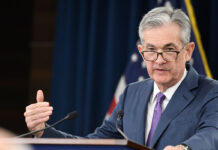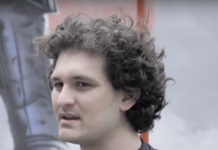The U.S. Citizenship and Immigration Services (USCIS) reported a substantial 40% drop in the number of H-1B visa lottery applications for the current year, signaling a dramatic shift in application trends. This decrease has been primarily attributed to new measures implemented to curb the manipulation of the system through multiple submissions by individuals and companies seeking an unfair advantage.
In previous years, the H-1B visa program experienced a surge in applications due to relatively lax requirements that allowed applicants to submit multiple entries. This included a significant jump in bids from 2021 to 2023 after the USCIS moved from requiring bulky paperwork to a simpler $10 electronic registration fee for lottery participation. This change was intended to streamline the process but inadvertently opened the door for applicants to flood the system with multiple bids. For instance, in 2022, one individual submitted bids for 83 job offers.
The issue of “gaming the system” became evident when the number of duplicate registrations reached over 400,000 out of approximately 759,000 total registrations last year. In response, the USCIS introduced a rule in 2024 that limited each applicant to a single entry into the lottery, regardless of the number of job offers they received. This new rule aimed to level the playing field and ensure that the visas would be awarded to those who intend to use them to contribute to the nation, as emphasized by USCIS Director Ur Jaddou.
The H-1B visa, created in 1990, is designed for highly skilled foreign workers in specialty occupations, predominantly in fields related to science, technology, engineering, and mathematics (STEM). These visas are crucial for U.S. companies facing labor shortages in these key areas, and they play a significant role in driving innovation and maintaining the competitiveness of American businesses on the global stage.
Despite the program’s intentions, it has not been without its critics. Some argue that the H-1B visa allows companies to hire foreign workers at lower wages and with fewer labor protections than might otherwise be required for U.S. workers. This has led to calls for further reforms, such as awarding visas to companies that offer the highest wages rather than through a random lottery, a policy former President Donald Trump pushed for during his tenure.
This year’s sharp decline in duplicate applications, with the total number of entries dropping to 470,342 from last year’s 758,994, suggests that the USCIS’s measures are having the desired effect of reducing fraud and abuse in the system. The total number of workers applying remained relatively stable, indicating that the drop in applications was indeed due to the elimination of multiple submissions rather than a decrease in interest or need for the visa.
The latest changes to the H-1B visa lottery system reflect ongoing efforts by the USCIS to ensure fairness and integrity in the selection process. While these adjustments have been welcomed by many, including major technology companies and business groups that rely heavily on these visas, there is still a call for more comprehensive reforms to address broader issues related to wage levels and labor protections.
As the USCIS continues to monitor and review the impacts of these changes, it remains committed to refining the process to better serve both U.S. employers and foreign workers. The ongoing dialogue between government agencies, corporations, and labor organizations is crucial in shaping a policy that balances the needs of the economy with the rights and opportunities of individuals.
Image is in the public domain.












